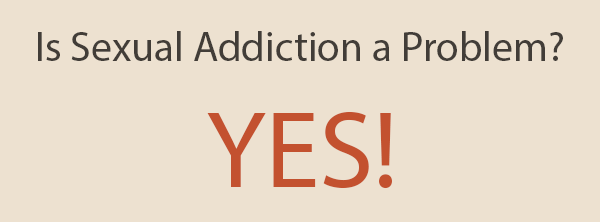
The causes of sexual addictions are complex. Many questions arise as to why some people have an inability to control their addictions while others are unaffected. Research provides unlimited sources of understanding as to what causes an addiction and how it can be facilitated.
To further shed some light on the subject, it might be best to look at the definition of what an addiction is. An addiction is a condition of any kind that takes total control over what a person is doing, thinking, or feeling. There are multiple addictions out there such as drugs, alcohol, shopping, gambling, and even an addiction to sexual behaviors. When the body responds to a pleasurable affect that becomes compulsive and incontrollable, interfering with one’s duties and responsibilities of everyday life, then one is known as having an addiction.
Sexual addiction can be termed as a progressive intimacy disorder that is categorized by compulsive sexual thoughts and behaviors. Once a person becomes an addict, there are negative implications that increase as the addiction progresses‒ such as infidelity or financial ruin. Over time, the addict must find gratification by intensifying their behavior just to achieve the same results.
Another way to define sexual addiction is when someone engages in persistent patterns of sexual behavior until they escalate out of control. Despite the negative consequences, those that have sexual addictions continue to engage in these types of behaviors that risk their health, create financial problems, and destroy relationships with family, friends, and employers. When sexual addiction becomes a problem, it is often due to a person’s inability to have a healthy response to stress, trauma, or anxiety that is caused from everyday life. More specifically, the addict is unable or unaware of the best way to correctly deal with the emotional mechanism which leads them to search out other ways to deal with their underlying emotions.
There are so many things that can cause addictions in today’s world. Compulsive behaviors arise from emotional links in the brain caused from overstimulation. When this type of behavior receives a feeling of pleasure, reward, or relief, it quickly becomes the primary relationship for the addict. Sexual addiction if often a way to cope with loneliness, anxiety, pain, depression or other painful emotions and stressors.
This becomes a real problem as addiction encompasses more than just a compulsive behavior to an emotional problem. It can also be associated with the inability to deal with feelings, exposure to traumatic events, distortions in a person’s ability to connect with self, or other dysfunctional belief patterns that trigger these specific emotions. This ultimately leads to an unhealthy way of living as the brain tries to reward the person for their addictive actions, thinking it is the only way to feel better. As a person continually encounters pornography or other sexual behaviors, it may also be a way to divert negative emotions that they have formed with other people. Some addictions, especially sexual addictions, are difficult to talk about particularly when a person is already struggling to manage what they don’t truly understand.
Just like all addictions, they will manifest themselves in different forms. Sometimes there may only be a few recognizable symptoms. Other times the signs are there, but seeking help is not always the easiest thing to do. Sexual addiction is a real problem that affects people of all types, ages, and social classes.
